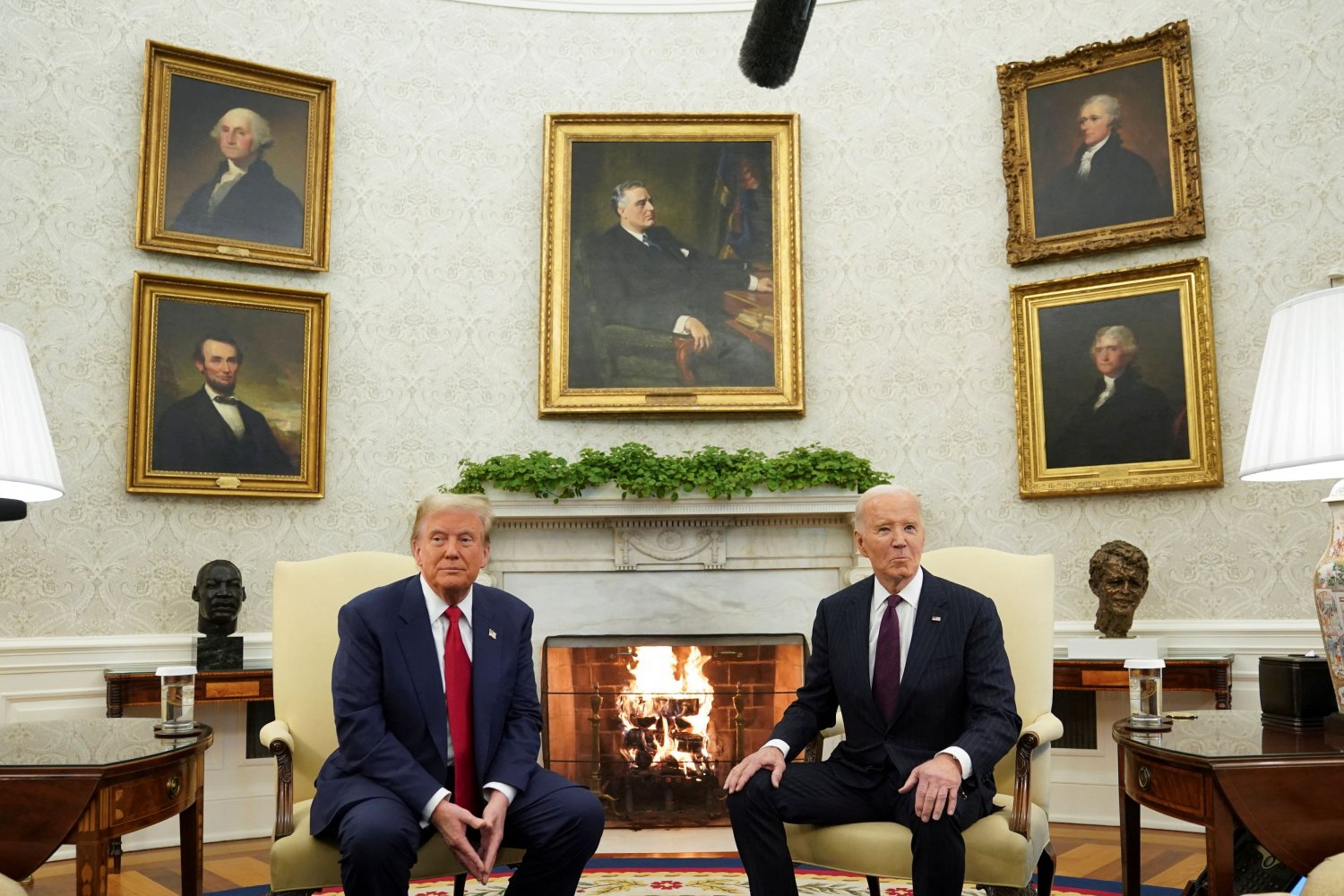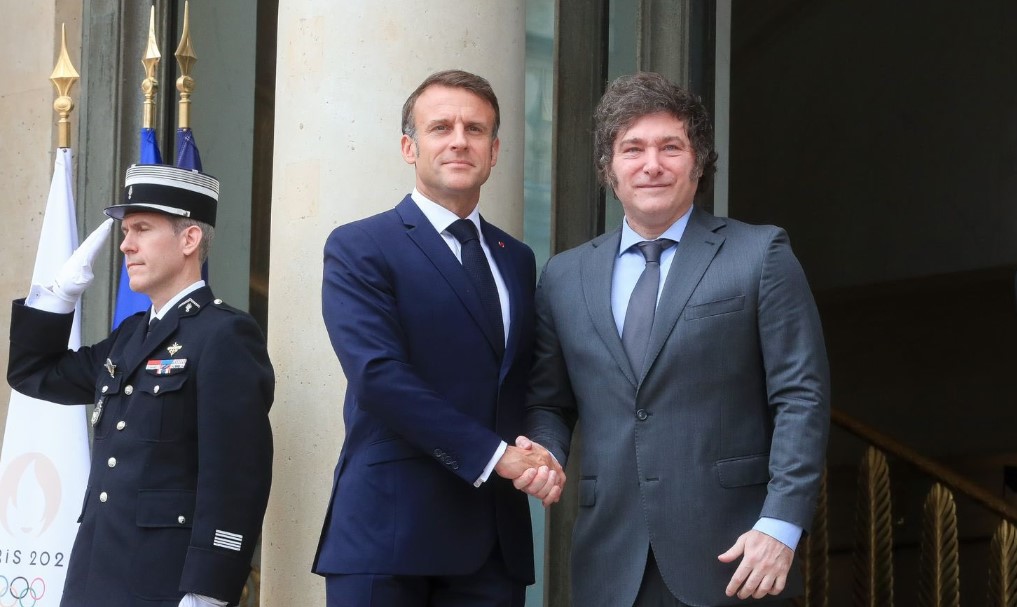Table of Contents
President Joe Biden’s apparent green light for Ukraine to strike Russia with US-made long-range missiles has upset some in Republican front-runner Donald Trump’s circles.
Trump himself has not commented, but he won the election after promising to end the war – and several people close to him have called the move a “dangerous escalation”, according to the BBC.
Donald Trump Jr. tweeted that the president was trying to “start World War III” before his father took office.
Biden’s decision has not been officially confirmed and may never be confirmed.
Ukrainian President Volodymyr Zelensky said there would be no such announcement – ”the missiles will speak for themselves.”
Trump’s camp is not happy
Trump won on November 5 and is set to return to the White House for a second term starting January 20 next year.
Trump has campaigned on a promise to end US involvement in wars and instead use taxpayer money to improve the lives of Americans.
He said he would end the Russia-Ukraine war within 24 hours, without saying how.
However, one thing is certain: Trump has always seen himself as a negotiator and would not want Biden to take such credit.
His son, Donald Trump Jr., was among the first Republicans to respond.
“The military industrial complex seems to want to ensure that World War III starts before my father has a chance to create peace and save lives,” he said.
At the same time, Marjorie Taylor Green, a staunch supporter of Trump, also condemned Biden. “The American people gave a mandate on November 5th against these very expensive American decisions and they do NOT want to fund or fight in foreign wars. We want to fix our own problems,” he wrote on X.
Subsequently, Utah Sen. Mike Lee wrote on X that “Liberals love war” and “War facilitates bigger government,” a position that has been repeatedly endorsed by tech multibillionaire Elon Musk, who has joined his inner circle. Trump.
Many Republicans want US support for Ukraine to end – 62% said in a Pew Research poll that the US has no responsibility to support the country against Russia.
But Biden plans to spend all the money Congress has approved by the January surrender.
Whether that includes more aid to Ukraine remains to be seen, as does Trump’s decision to continue his policies or reverse them.
Silent fish from Putin
Since launching a full-scale invasion of Ukraine in February 2022, Russia’s president has explicitly attacked the US-led NATO alliance, warning of retaliation for any military support from Western allies in Ukraine that he perceives as direct involvement. .
His spokesman said on Monday that the US was “adding fuel to the fire”.
In a statement, the Russian Foreign Ministry said that “Kiev’s use of long-range missiles to attack our territory would represent the direct involvement of the United States and its satellites in hostilities against Russia, as well as a radical change in the substance and nature of the conflict,” it said in a statement.
The ministry said such action would fundamentally change the nature of the war and trigger “an adequate and tangible” response from Russia.
From time to time, Putin has mentioned the possibility of using nuclear weapons.
Few believe that this can happen, since, according to the doctrine of mutual destruction established during the Cold War when nuclear arsenals were built, Putin knows that their use would bring untold suffering to everyone, including the Russians.
But the Russian leader is also fully aware of the magnitude of the threat of long-range missiles being supplied to Ukraine from the West.
Ukraine has had ATACMS, as well as UK and French Storm Shadow missiles of similar range for some time. But they are not allowed to be used inside Russia.
France and the UK are expected to follow the US lead and lift restrictions on Ukraine. So far they have not proceeded with this move.
White House officials stress to US media that Biden’s change of stance is a response to Russia’s deployment of North Korean troops and a message to Pyongyang not to send more.
It comes after Ukraine suffered a barrage of Russian attacks in recent days.
Immediately after Biden’s decision, Russia launched an attack on Odessa, killing 10 people and injuring 47 others.
#Republicans #angry #Bidens #green #light #Ukraine
Iles supply to Ukraine.
Section 1: Discussing the Republican discontent regarding President Biden’s decision to allow Ukraine to use American-made long-range missiles.
Guest 1: As a Republican strategist, how do you think your party will respond to President Biden’s decision to greenlight Ukraine’s use of US-made long-range missiles? Do you think this move will create further division within the GOP, or will there be a unified stance against it?
Guest 2: As a political analyst, how do you see the potential impact of this decision on President Biden’s relationship with the Republican opposition, especially those who are supporting former President Trump? Could this escalate tensions between the two parties?
Section 2: Analyzing Donald Trump’s reaction and stance on the Russia-Ukraine conflict.
Guest 1: Given that Donald Trump won the election on a platform of ending US involvement in foreign wars, how do you think he will react to President Biden’s decision to supply Ukraine with long-range missiles? Do you think he will distance himself from his previous promises or try to utilize this situation to his political advantage?
Guest 2: How do you assess the potential geopolitical implications of Donald Trump Jr.’s statement that his father will be able to end the war within 24 hours, considering the ongoing tensions between Russia and Ukraine? Could such statements inflame the situation further, or do you think they are just rhetoric for his father’s future policies?
Section 3: The role of key figures in shaping Republican opinions on US support for Ukraine.
Guest 1: Marjorie Taylor Green and Mike Lee have been vocal in their opposition to US support for Ukraine. Can you explain the influence these individuals hold within the Republican party, and how their opinions might sway the GOP’s stance on this issue? Additionally, how important is the role of Elon Musk, who has also criticized US involvement in Ukraine?
Guest 2: What about the perspective of Utah Senator Mitt Romney, who has advocated for continued support for Ukraine? Does his stance carry any weight within the party, or is it overshadowed by more hawkish voices?
Section 4: The potential implications of Russia’s reaction to the long-range miss


